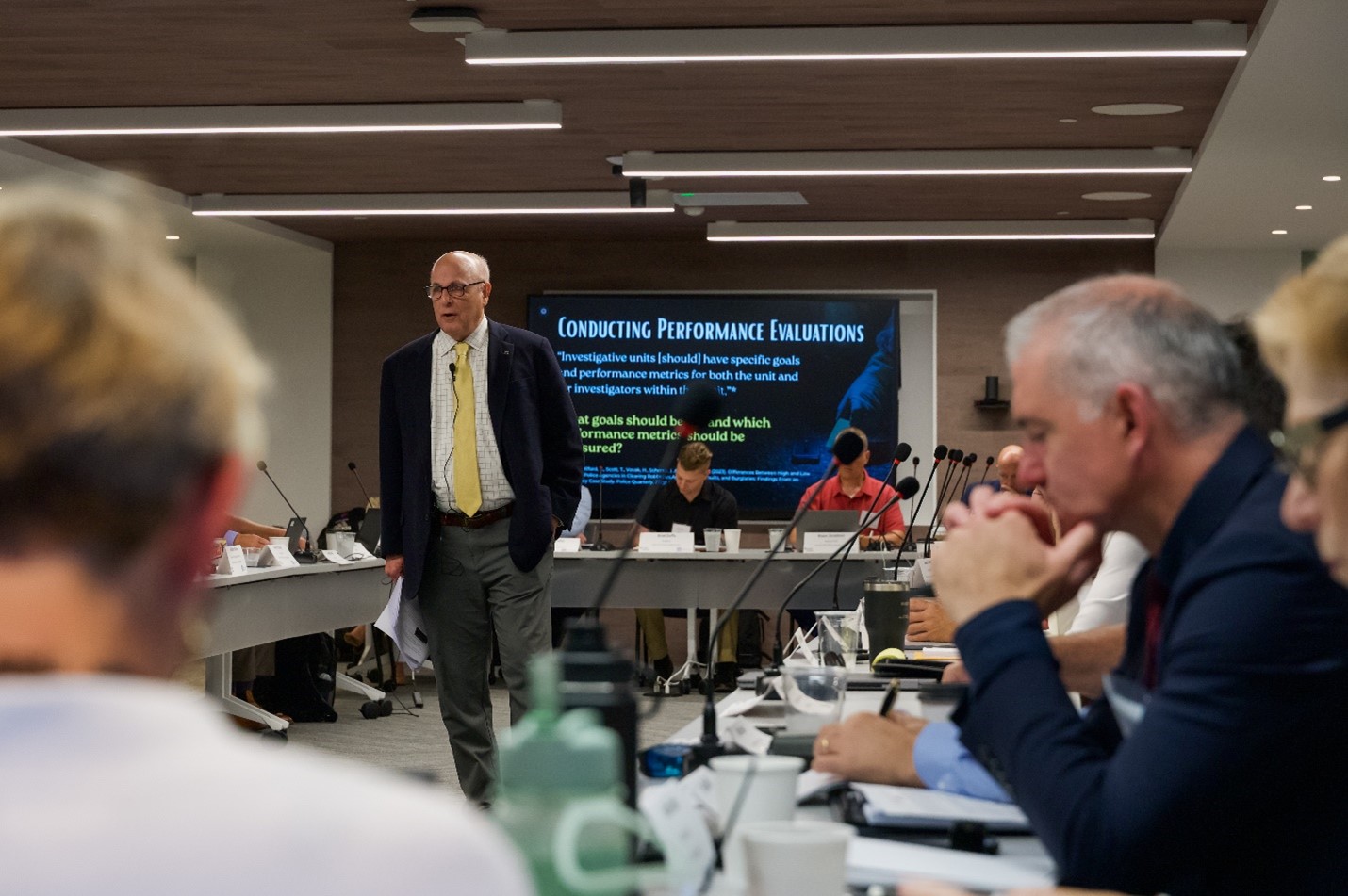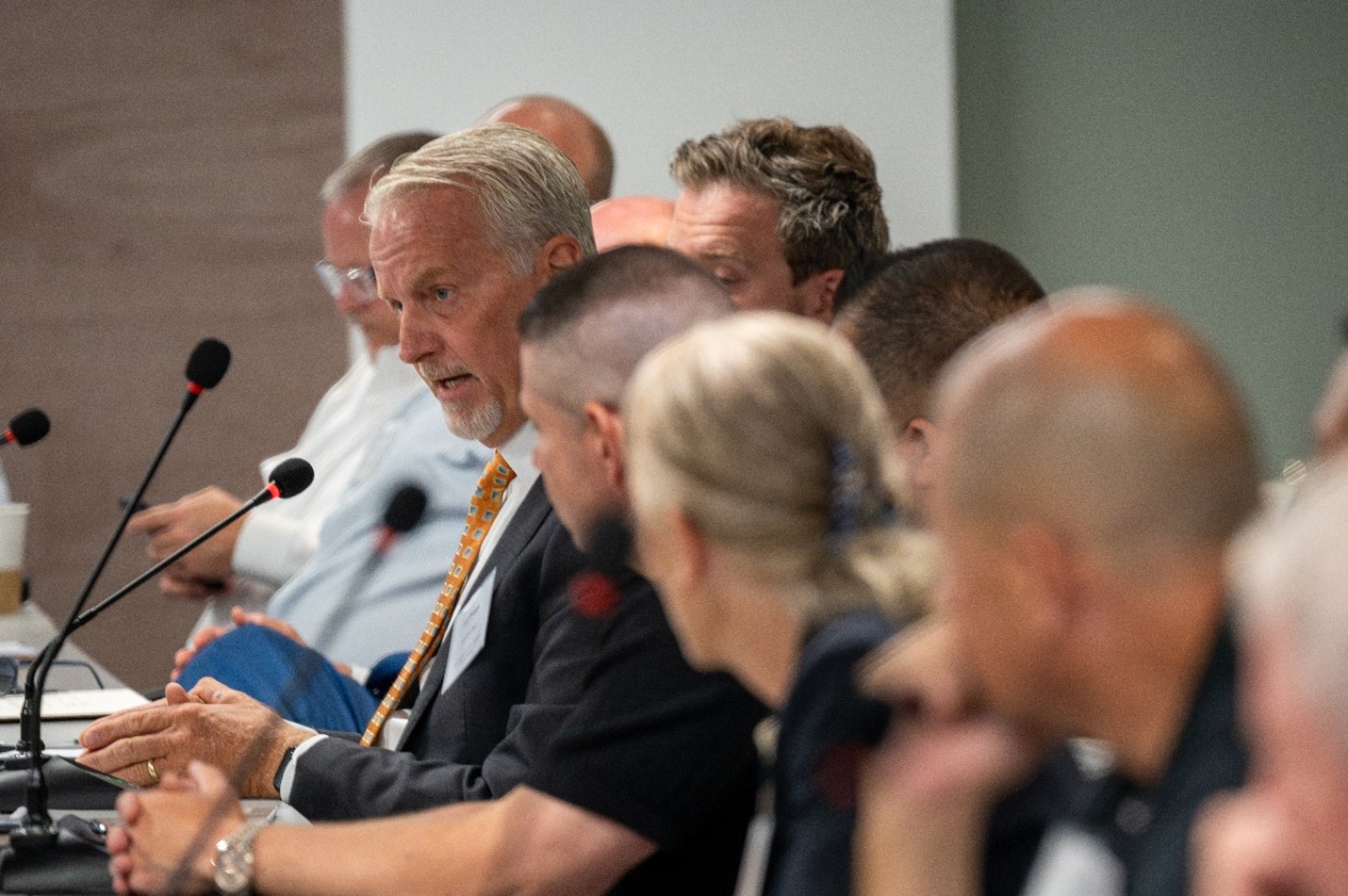|
June 28, 2025 Developing a training curriculum for investigative supervisors 50 years after the RAND study
PERF members, Nearly 50 years ago, RAND published a landmark study of criminal investigation practices. The research included a national survey and “interviews and observations . . . in more than 25 departments selected to represent different investigative styles.” RAND got permission from police chiefs to have researchers ride along with detectives. The study advanced our knowledge of how cases were solved, identifying “solvability factors” that could help agencies determine which cases detectives were most likely to close. But the researchers found that detectives’ efforts had little impact on whether or not a case would be solved. “Only about three percent of all index arrests appeared to result from special investigative efforts where organization, training, or skill could make any conceivable difference,” researcher Dr. Peter W. Greenwood later wrote. (As a brief aside, when I worked in the Boston Police Department [BPD], I heard that when the RAND researchers briefed BPD officials about their findings, they mentioned detectives attended to personal business like picking up dry cleaning and visiting significant others while on the job. That wasn’t something BPD leaders were expecting to hear, and the researchers and BPD officials were left wondering what the detectives did when they weren’t observed!) Significantly, in the decades since, new research has contradicted that finding. Experts on this topic, such as Professor Cynthia Lum of George Mason University and Professor Emeritus Charles Wellford of the University of Maryland, have discussed how the research has changed. “More recent studies on police investigations have indicated that there is more to predicting crime clearances than case characteristics and solvability factors,” Professor Lum, Professor Wellford, and others wrote in a 2024 Police Quarterly article. “Scott et al. (2019), Vovak (2016), and Worrall (2016) have all discovered that agencies across the U.S. vary in their long-term patterns of crime clearance. Some agencies consistently perform much better (or worse) than the national average in terms of clearance rates for specific types of crime. In addition, evaluations of specific agencies suggest criminal investigations can be improved through better management, training, policies, use of technology, and investigative techniques.” I asked Professor Wellford to elaborate on this point. “[The RAND] finding stood until researchers began to study investigations using case files and interviews with investigators, allowing them to understand investigations at the case level,” he wrote to me. “These studies also considered the role of police and specifically detectives for specific types of crime. Although the focus of this research has been on homicides, in recent years research has also focused on robberies, assaults, sex crimes, and burglaries. This research has clearly demonstrated that how police organize, investigate, and manage homicide investigations is more significant than case, offender, or victim characteristics in explaining homicide clearances.” A decade ago, PERF reviewed homicide investigations in a number of large jurisdictions at the request of the Bureau of Justice Assistance. The findings were published in a 2018 report and aligned with Professor Wellford’s observations. Contrary to what the RAND studies found, we saw that management makes a difference and that today’s investigative supervisors are highly engaged with their detectives! But despite the field’s improved knowledge of criminal investigations, the homicide clearance rate has steadily declined over the decades and varies widely from agency to agency. I wrote about this drop and some possible explanations for it in this column in 2023, and I remember regularly speaking with one of my mentors, Al Cardarelli at Boston University, about this subject. PERF has observed there is no uniformity or best practices for supervisors managing investigations. In an effort to improve criminal investigations, this week we hosted a meeting to discuss a training curriculum for investigative supervisors. This project is funded by Arnold Ventures, which has prioritized identifying ways police departments could more effectively solve crime. Based on this meeting and additional background research, PERF will develop a curriculum to better equip investigative supervisors for their jobs. We will then look to test that curriculum in the field.
Attendees at this week’s meeting included chiefs, deputy chiefs, captains, lieutenants, and sergeants from across the United States who are involved in supervising investigations. We also heard from police officials in Canada, the United Kingdom, Germany, France, Australia, and Japan, as well as researchers who study policing and a prosecutor. Attendees discussed key aspects of supervising investigators, including the following:
You’ll see those topics addressed more thoroughly in the final training curriculum, but I’d like to briefly share a few of my highlights from the discussion.
Frauke Schlembach, Senior Police Liaison Officer with the German Embassy.
Retired LAPD Detective John Skaggs.
Jackie Sebire, former superintendent with the Metropolitan Police Service (UK). I’m grateful to everyone who attended this week’s meeting and to Arnold Ventures for supporting this important work. I left the meeting encouraged by the many thoughtful, driven people working on these challenges, and I’m looking forward to sharing this training curriculum with you in the coming months. Best, Chuck |




